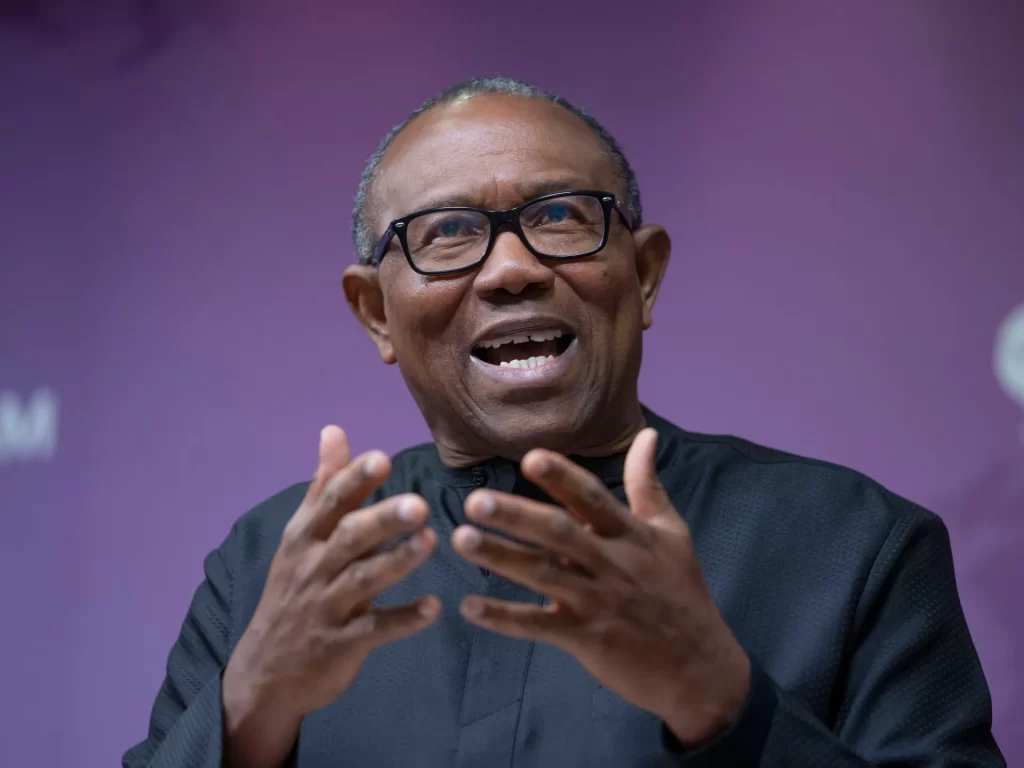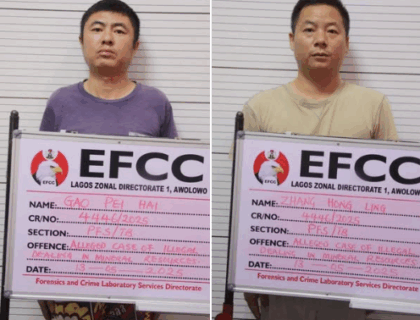The Parliamentary Vote Held Yesterday Proves True Democracy Does Not Exist In Nigeria – Peter Obi
Peter Obi has once again criticized the use of a voice vote by the Nigerian Senate and House of Representatives to approve President Tinubu’s State of Emergency declaration on Rivers State on March 18.
In a post on X this morning, Obi argued that the voice vote reflects the absence of true democracy in Nigeria. He also pointed out how lawmakers switch parties after elections without losing their seats, highlighting flaws in the country’s democratic system.
He argued that what Nigeria is left with is not a genuine democratic system, but one that is ‘’transactional, compromised, and, in many respects, resembles organised criminality”.
The former Anambra State governor asserted that without urgent reforms to uphold true democratic principles, enforce party discipline, and guarantee fair representation, Nigeria’s democracy will continue to be fragile and dysfunctional.
“The parliamentary vote held yesterday clearly demonstrates that democracy, in its true sense, does not exist in Nigeria. Where there is no functional opposition, democracy cannot thrive.
Opposition is a critical pillar of any democratic system. It ensures that the right things are done, holds the ruling party accountable, and offers alternative viewpoints.
However, an effective opposition can only exist within a system that supports proportional representation—an approach practised in countries like South Africa and Indonesia.
In South Africa, for example, the National Assembly has 400 seats. The African National Congress (ANC) received about 40% of the vote and holds approximately 160 seats, while the Democratic Alliance (DA), with about 20% of the vote, holds around 80 seats—alongside several other parties.
Those who contested the presidential election remain the recognised leaders of their respective parties.
A similar situation exists in Indonesia and other countries where democracy is genuinely practised. As is the norm in such systems, laws prohibit elected officials from switching parties without forfeiting their seats.
This helps maintain party discipline and preserves the sanctity of the electoral mandate. These mechanisms contribute to a more balanced, accountable, and credible democratic process.
If that were the case in Nigeria, our Senate—comprising 109 seats—would be more reflective of electoral realities, with the APC holding 44 seats, the PDP 33 (under the leadership of Atiku), and the Labour Party 27 (under my leadership).
Ideally, the House of Representatives should mirror this balance, with approximately 144 APC members, 108 PDP members, and 90 Labour Party members. But this is far from the case.
The absence of laws restricting party defection allows politicians to switch allegiances freely and without consequence.
This not only weakens the opposition but also makes a mockery of the electorate’s will and undermines the integrity of our democratic institutions.
What we are left with is not a genuine democratic system, but one that is transactional, compromised, and, in many respects, resembles organised criminality.
Unless we urgently implement reforms to entrench true democratic principles, enforce party discipline, and ensure fair representation, Nigeria’s democracy will remain fragile and dysfunctional.
But we will not surrender to criminality. We shall continue to fight for democracy—genuine democracy.
-PO”
You may be interested

FCT Police Spokesperson SP Josephine Adeh Honoured with Best Police PRO Award at 2025 Nigerian Police Awards
gisthub - Jun 05, 2025Superintendent of Police Josephine Adeh, the FCT Police Command’s Public Relations Officer, has clinched the prestigious title of Public Relations Officer of the…

Woman Whose Lip Was Severed by Ex-Boyfriend Shares Recovery Seven Years Later
gisthub - Jun 05, 2025Kayla Hayes’ story is a powerful example of resilience in the face of unimaginable violence. In 2017, at just 17, she was brutally…

Pornhub Ban Spreads Across Europe Over Under-18 Access Dispute
gisthub - Jun 05, 2025Pornhub’s bold exit from France is a striking clash between digital privacy and regulatory zeal—a flashpoint in the ongoing war to shield minors…














Leave a Comment